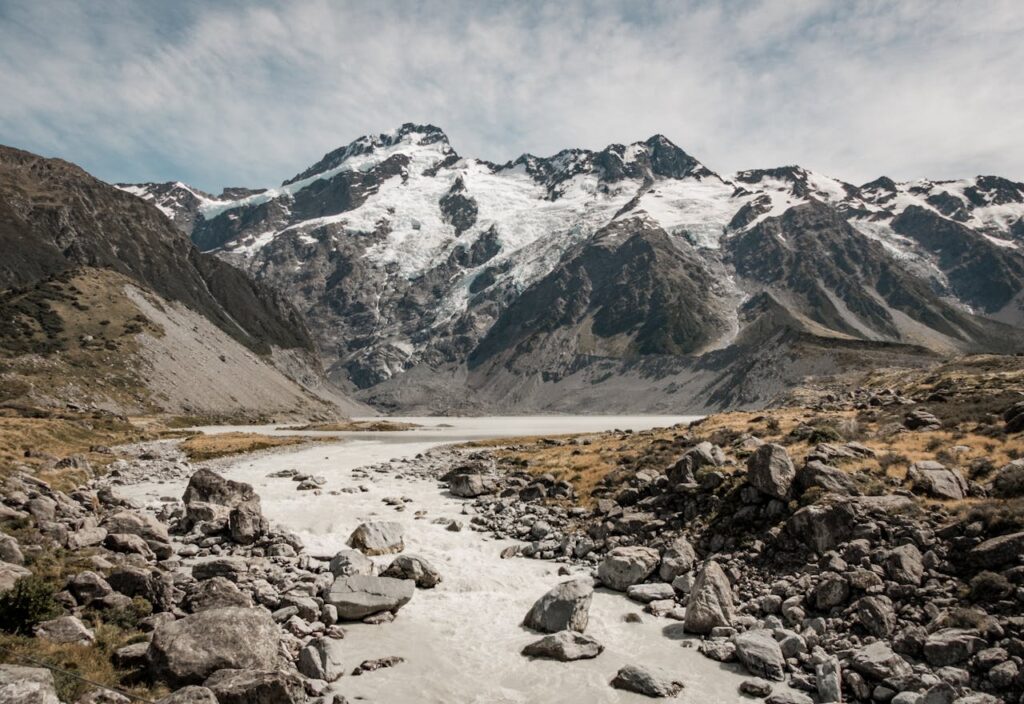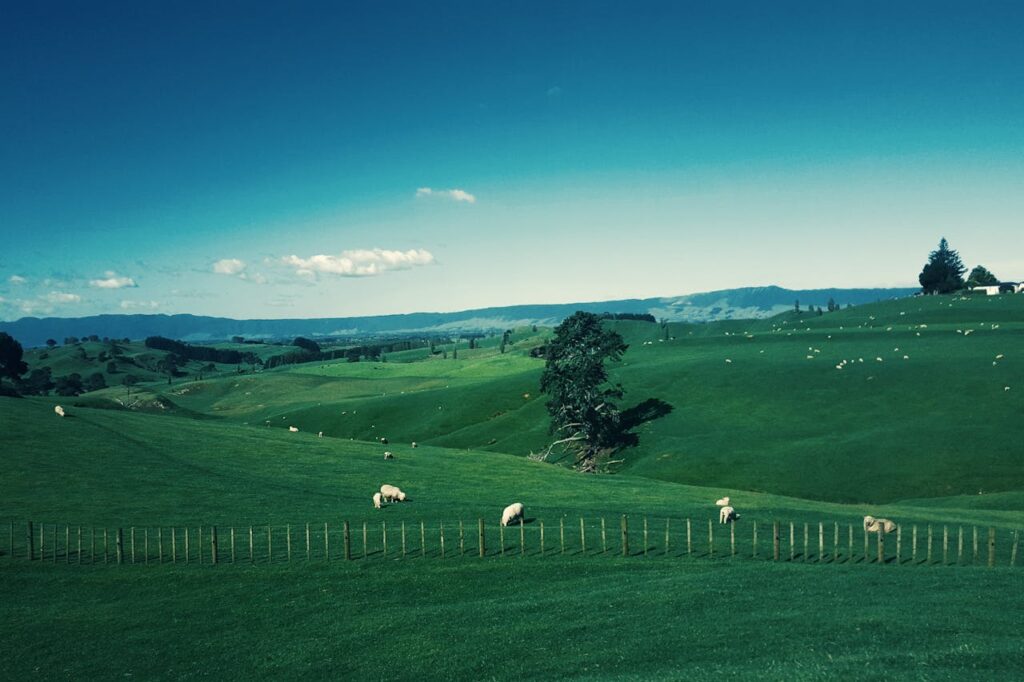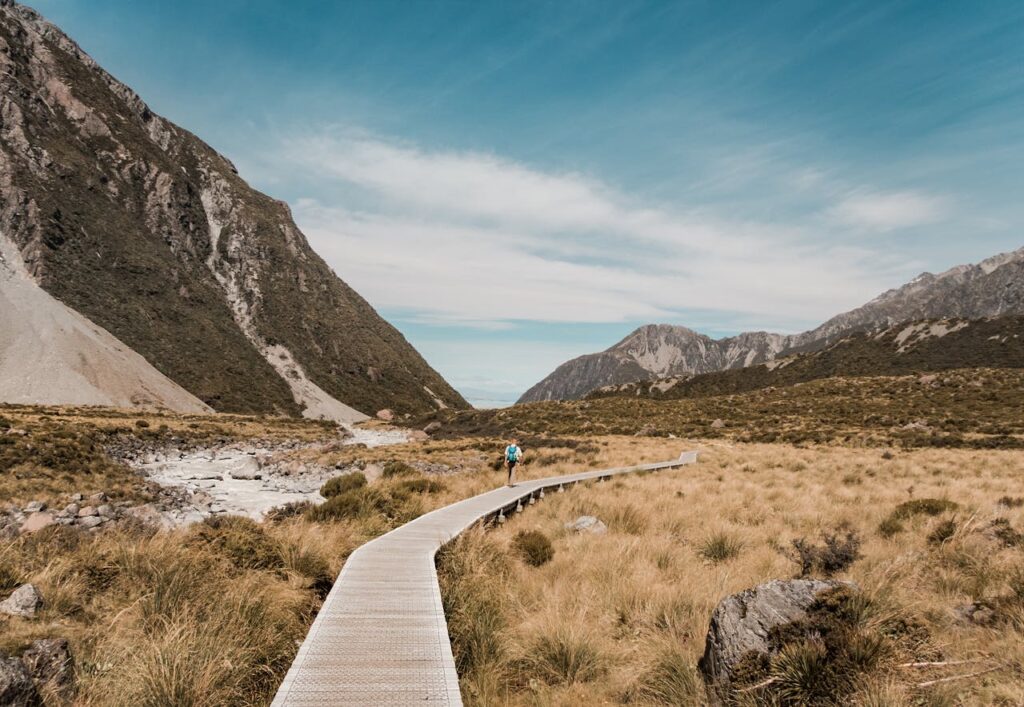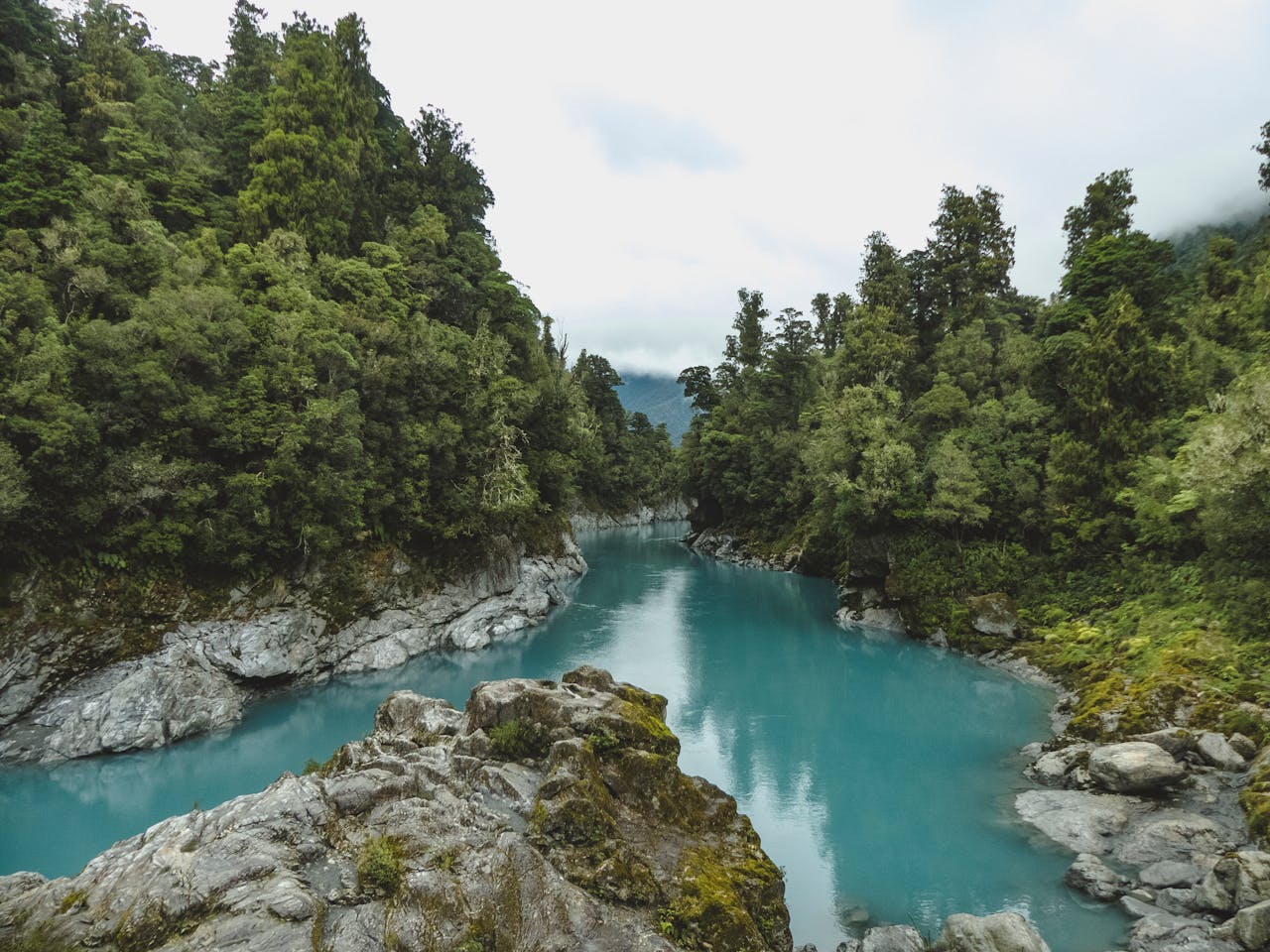Introduction: Travel Tips for New Zealand.
New Zealand, a land of stunning landscapes, vibrant culture, and endless adventure, is a dream destination for many travelers. Whether you’re drawn to its majestic mountains, pristine beaches, or rich Māori heritage, being well-prepared can make your trip even more enjoyable. Here are some essential Travel Tips for New Zealand to help you make the most of your New Zealand adventure.
1. Best Time to Visit
New Zealand’s climate varies significantly from north to south, making it a year-round destination. However, the best time to visit depends on your interests:
- Summer (December to February): Ideal for beach activities, hiking, and outdoor adventures. Popular spots like Queenstown and the Bay of Islands are bustling with tourists.
- Autumn (March to May): Offers mild weather and fewer crowds. It’s a great time for wine tours and exploring the countryside.
- Winter (June to August): Perfect for skiing and snowboarding in the South Island’s alpine regions.
- Spring (September to November): Witness blooming flowers and newborn lambs. It’s also a good time for outdoor activities with moderate weather.
2. Getting There
New Zealand is well-connected to major international destinations:
- Airports: Auckland, Wellington, and Christchurch are the primary international gateways.
- Flights: Numerous airlines offer direct flights to New Zealand. Consider booking in advance to secure the best deals and seats.
3. Transportation Within New Zealand
Exploring New Zealand is an adventure in itself, with various transportation options:
- Rental Cars and Campervans: Ideal for flexibility and exploring off-the-beaten-path locations. Remember, New Zealanders drive on the left side of the road.
- Buses: Intercity buses are a cost-effective way to travel between major cities and towns.
- Domestic Flights: For quicker travel between the North and South Islands, domestic flights are convenient. Travel Tips for New Zealand
4. Accommodation
New Zealand offers a wide range of accommodation options to suit all budgets:
- Hotels and Motels: Available in cities and tourist hotspots.
- Hostels: Budget-friendly and great for meeting fellow travelers.
- Airbnb: Offers unique stays, from city apartments to countryside cottages.
- Campervan Parks: Perfect for those traveling by campervan, with facilities like kitchens and showers.

5. Must-See Destinations
New Zealand is packed with incredible destinations. Here are some highlights:
- North Island:
- Auckland: A vibrant city with a stunning harbor, diverse culture, and nearby islands.
- Rotorua: Known for its geothermal activity and Māori culture.
- Wellington: The capital city, famous for its arts scene and beautiful waterfront.
- South Island:
- Queenstown: The adventure capital, offering activities like bungee jumping and skiing.
- Milford Sound: A breathtaking fjord with stunning scenery and wildlife.
- Christchurch: A city known for its resilience and beautiful gardens.
6. Outdoor Activities and Adventures
New Zealand is an outdoor enthusiast’s paradise:
- Hiking: Trails like the Tongariro Alpine Crossing and the Milford Track offer spectacular views.
- Bungee Jumping: Queenstown is the birthplace of commercial bungee jumping.
- Skiing: The South Island’s ski resorts, like Cardrona and Treble Cone, are world-class.
- Water Sports: Kayaking, surfing, and sailing are popular, especially in coastal areas.
7. Cultural Insights
Understanding and respecting local culture enhances your travel experience:
- Māori Culture: Learn about the indigenous Māori people, their traditions, and language. Visiting a marae (Māori meeting ground) can be a profound experience.
- Respect: Show respect by following local customs, such as removing shoes before entering a home. Travel Tips for New Zealand
8. Food and Drink
New Zealand’s culinary scene is diverse and delicious:
- Must-Try Dishes: Sample local favorites like fish and chips, meat pies, and pavlova.
- Wine: New Zealand is renowned for its wine, particularly Sauvignon Blanc from Marlborough.
- Dining Out: Explore local food markets and try the fresh produce and artisanal products.
9. Budgeting and Money-Saving Tips
Traveling in New Zealand can be expensive, but there are ways to save:
- Accommodation: Consider staying in hostels or booking Airbnb for longer stays.
- Food: Cook your meals if you have access to a kitchen, and take advantage of supermarket deals.
- Activities: Look for free or low-cost activities, such as hiking and visiting public parks.
10. Health and Safety
Staying healthy and safe ensures a smooth trip:
- Health Precautions: No special vaccinations are required, but travel insurance is recommended.
- Safety Tips: New Zealand is generally safe, but always follow safety guidelines for outdoor activities and be aware of weather conditions.
11. Packing Tips
Packing smartly can make your trip more comfortable:
- Essentials: Pack layers to accommodate varying weather conditions. Don’t forget sunscreen, a hat, and sturdy walking shoes.
- Outdoor Gear: If you plan on hiking or camping, bring appropriate gear like a waterproof jacket and a good backpack.

12. Frequently Asked Questions.
- What do I need to know before travelling to New Zealand?
Traveling to New Zealand is an exciting adventure! Here are some key things to know before you go:
Entry Requirements
- Visa and Passport: Ensure your passport is valid for at least three months beyond your intended departure date. Depending on your nationality, you might need a visa or a New Zealand Electronic Travel Authority (NZeTA).
- New Zealand Traveller Declaration: All travelers, including children, must complete this declaration before entering New Zealand.
Health and Safety
- COVID-19 Guidelines: While vaccination and pre-departure tests are no longer required, it’s recommended to stay up-to-date with vaccinations. If you develop symptoms, free rapid antigen tests (RATs) are available.
- Travel Insurance: Consider getting medical and travel insurance for peace of mind during your trip.
Weather and Clothing
- Unpredictable Weather: New Zealand’s weather can change rapidly. Pack for all seasons, including a hat and sunscreen, as UV levels can be high.
- Casual Dress Code: New Zealanders dress casually, even in urban areas. It’s common to see people barefoot in supermarkets and other public places.
Transportation
- Car Dependency: Public transport outside major cities can be limited. Renting a car might be the best option to explore the country.
Cultural Tips
- Respect Local Customs: Avoid sitting on tables, as it’s considered taboo. Embrace the friendly and laid-back Kiwi culture.
Other Considerations
- Stay Connected: Consider getting a local SIM card for your phone to stay connected.Travel Tips for New Zealand.
- Emergency Services: Dial 111 for any emergencies.
- How many days do you need in New Zealand?
The ideal duration for a trip to New Zealand depends on what you want to see and do. Here are some general guidelines:
- 5 days: Focus on either the North Island or the South Island. You can explore a few key areas, like Auckland and Rotorua on the North Island or Queenstown and Christchurch on the South Island.
- 7 days: You can cover one island more thoroughly or make a quick trip to both islands, but you’ll need to move quickly.
- 10 days: This is a great amount of time to explore both islands at a comfortable pace, enjoying major highlights and some outdoor activities.
- 14 days or more: With two weeks, you can experience the best of both islands, including hidden gems and off-the-beaten-path destinations
- What are the tourist requirements for New Zealand?
To visit New Zealand as a tourist, here are the key requirements:
- Passport Validity: Your passport must be valid for at least three months beyond your intended departure date.
- Visa Requirements:
- Proof of Funds: You must show that you have enough money to support yourself during your stay.
- Return or Onward Ticket: You need to have proof of a return or onward ticket.
- Health and Character Requirements: You must not pose a risk to public health and must be of good character.
- What items are not allowed into New Zealand?
When traveling to New Zealand, there are several items that are either prohibited or restricted to protect the country’s biosecurity and public safety. Here are some key examples:
Prohibited Items
- Agricultural Products: Fresh fruits, vegetables, plants, seeds, and soil.
- Drugs and Drug Paraphernalia: Methamphetamine, cannabis utensils, and any related equipment.
- Firearms and Weapons: Including airguns, unless you have a permit from the New Zealand Police.
- Objectionable Material: Publications or media depicting extreme violence, cruelty, or other harmful content.
- Children’s Art Supplies: Certain crayons, finger paints, and watercolour paints due to toxic elements.
Restricted Items
- Medicines: Prescription medicines and controlled drugs require approval.
- Tobacco and Alcohol: There are limits on the quantities you can bring without paying duties.
- Endangered Species: Items made from endangered species require special permits.
- Radio Transmitters: Some devices that can interfere with communication networks.
It’s always a good idea to check the latest regulations on the New Zealand Customs Service website before you travel to ensure compliance. Travel Tips for New Zealand
- What are 10 facts about New Zealand?
- First to Grant Women’s Suffrage: New Zealand was the first country in the world to grant women the right to vote in 1893.
- Unique Wildlife: The only native land mammals in New Zealand are bats. All other land mammals were introduced by humans.
- Southernmost Capital: Wellington, the capital of New Zealand, is the southernmost capital city in the world.
- High Sheep Population: There are more sheep than people in New Zealand, with a ratio of about 7 sheep for every person.
- No Snakes: There are no native snakes in New Zealand.
- Maori Culture: The indigenous Maori people call New Zealand “Aotearoa,” which means “Land of the Long White Cloud”.
- Film Industry: New Zealand is famous for its stunning landscapes, which have been featured in many films, including the “Lord of the Rings” trilogy.
- High Car Ownership: New Zealand has one of the highest car ownership rates in the world, with around 2.5 million cars for 4 million people.
- Tallest Freestanding Structure: The Auckland Sky Tower is the tallest freestanding structure in the Southern Hemisphere, standing at 328 meters (1,076 feet).
- Inventive Spirit: New Zealanders are known for their ingenuity and can-do attitude, often referred to as the “Number 8 wire mentality,” which means they can fix anything with a piece of Number 8 wire
- Why is New Zealand so special?
New Zealand is truly a unique and special place for several reasons:
- Stunning Landscapes: From the majestic fjords of Milford Sound to the rolling hills and ancient glaciers, New Zealand’s natural beauty is breathtaking.
- Adventure Tourism: Known as the adventure capital of the world, New Zealand offers activities like bungy jumping, skydiving, white-water rafting, and more.
- Rich Māori Culture: The indigenous Māori culture is deeply woven into the fabric of New Zealand life. You can experience traditional dances like the haka, visit cultural sites, and learn about their history and traditions.
- Unique Wildlife: Home to unique species like the kiwi bird, New Zealand’s wildlife is fascinating. You can also see dolphins, whales, and penguins in their natural habitats.
- Middle-earth: For fans of “The Lord of the Rings” and “The Hobbit,” New Zealand is a must-visit. The country served as the filming location for these iconic movies, and you can visit Hobbiton and other famous sites.
- Friendly Locals: Known for their hospitality, New Zealanders (or Kiwis) are welcoming and friendly, making visitors feel at home.
- Delicious Food and Wine: New Zealand is renowned for its fresh, organic produce and world-class wines, particularly from regions like Marlborough and Central Otago.
- Geothermal Wonders: The country has impressive geothermal activity, including geysers, hot springs, and bubbling mud pools, especially around Rotorua

- New Zealand travel itinerary
Popular Itineraries
- Southern Voyager: An active adventure tour exploring the stunning landscapes of the South Island.
- Best of the North Island: An in-depth cultural tour highlighting the unique experiences of the North Island.
- Coasts & Culture Tour: An explorer tour that combines coastal beauty with cultural experiences.
- NZ Adventure South: A thrilling adventure tour focusing on the South Island’s outdoor activities.
- New Zealand South Island Express: A quick yet comprehensive tour of the South Island’s highlights. Travel Tips for New Zealand
- What is the number 1 tourist destination in NZ?
One of the top tourist destinations in New Zealand is Queenstown. Known as the adventure capital of the world, Queenstown offers a stunning backdrop of Lake Wakatipu and the Remarkables mountain range. It’s famous for activities like bungee jumping, jet boating, skiing, and hiking
- International travel tips for new zealand
Here are some essential tips for traveling to New Zealand:
- Plan a Realistic Itinerary: New Zealand has a lot to offer, so don’t try to see everything in one trip. Focus on either the North Island or the South Island if you have limited time.
- Visa Requirements: Ensure you have the necessary visa. Most visitors need an NZeTA (New Zealand Electronic Travel Authority) and must pay the International Visitor Conservation and Tourism Levy (IVL).
- Pack Lightly: New Zealand is well-developed, so you can buy most things you need there. Pack versatile clothing suitable for various weather conditions.
- Respect Biosecurity Rules: New Zealand has strict biosecurity laws. Declare any food, plants, or animal products you bring into the country to avoid fines.
- Transportation: Renting a car is a popular way to explore, but public transport and domestic flights are also good options. Be aware that driving is on the left side of the road.
- Travel Seasons: Summer (December to February) is peak tourist season, so book accommodations and activities in advance. Spring (September to November) and autumn (March to May) offer milder weather and fewer crowds.
- Embrace Local Culture: Learn about and respect Māori culture. Visiting cultural sites and participating in local traditions can enrich your experience.
- Stay Sun Safe: The sun in New Zealand can be very strong. Wear sunscreen, hats, and sunglasses to protect yourself.
- Outdoor Activities: New Zealand is known for its outdoor adventures. Whether it’s hiking, skiing, or water sports, make sure you’re prepared and follow safety guidelines.
- Connectivity: Wi-Fi is widely available, but consider getting a local SIM card for better connectivity, especially in remote areas
- What is the best transport for New Zealand?
New Zealand offers a variety of transport options, each with its own advantages depending on your travel style and itinerary. Here are some of the best ways to get around:
1. Rental Car or Campervan
- Pros: Ultimate freedom to explore at your own pace, convenient for short trips, and no worries about maintenance as roadside assistance is usually included.
- Cons: Can be pricey and long trips can be tiring.
2. Domestic Flights
- Pros: Efficient for covering long distances quickly, especially between the North and South Islands. Travel Tips for New Zealand
- Cons: You might miss out on the scenic beauty visible from ground level.
3. Buses and Coaches
- Pros: Budget-friendly and extensive network covering most regions. Guided coach tours are also available for a more relaxed experience.
- Cons: Slower compared to other modes of transport.
4. Trains
- Pros: Scenic rail journeys offer spectacular views not visible from the road.
- Cons: Limited routes and can be more expensive.
5. Ferries and Water Taxis
- Pros: Essential for traveling between islands, such as the Interislander ferry between the North and South Islands.
- Cons: Can be weather-dependent.
6. Public Transport
- Pros: Available in bigger cities with hop-on hop-off bus services and local bus networks.
- Cons: Less flexible compared to self-driving.
7. Rideshares and Taxis
- Pros: Convenient for short distances and city travel.
- Cons: Can be expensive for longer trips.
8. Cycling and Motorbikes
- Pros: Great for adventure seekers and those wanting to explore at a slower pace.
- Cons: Weather-dependent and requires physical effort
- What is the cheapest month to fly to New Zealand?
The cheapest months to fly to New Zealand are typically May and the winter months from July to November. During these times, tourism is lower, and airlines often reduce prices to attract travelers.
- Travel tips for new zealand from india.
1. Plan Your Itinerary
- Timeframe: New Zealand has two main islands, North and South. If you have limited time, focus on one island. Ideally, spend at least two weeks to explore both.
- Must-See Places: Include popular spots like Auckland, Rotorua, Queenstown, and Milford Sound. Travel Tips for New Zealand
2. Visa and Travel Documents
- NZeTA: Apply for the New Zealand Electronic Travel Authority (NZeTA) and pay the International Visitor Conservation and Tourism Levy (IVL) before you travel.
- Passport: Ensure your passport is valid for at least six months beyond your planned departure date.
3. Packing Essentials
- Weather: New Zealand’s weather can be unpredictable. Pack layers, including a waterproof jacket, and don’t forget sunscreen due to high UV levels.
- Travel Light: You can buy most essentials in New Zealand, so pack light and versatile clothing.
4. Transportation
- Car Rental: Renting a car is a great way to explore New Zealand, especially since public transport options can be limited outside major cities.
- Driving: Remember to drive on the left side of the road. Familiarize yourself with local driving rules and conditions.
5. Accommodation
- Book in Advance: Especially during peak seasons (December to February), book your accommodations well in advance.
- Variety: New Zealand offers a range of accommodations from luxury hotels to budget hostels and holiday parks. Travel Tips for New Zealand
6. Food and Culture
- Local Cuisine: Try local dishes like fish and chips, meat pies, and Māori hangi. New Zealand also has excellent dairy products and wines.
- Cultural Etiquette: Respect local customs, such as removing shoes before entering someone’s home and not sitting on tables.
7. Activities and Adventures
- Outdoor Activities: New Zealand is known for its outdoor adventures. Try hiking, bungee jumping, skydiving, and exploring national parks.
- Wildlife: Visit wildlife sanctuaries and see unique species like kiwis and tuataras.
8. Health and Safety
- Travel Insurance: Get comprehensive travel insurance that covers health, accidents, and cancellations.
- Emergency Numbers: Familiarize yourself with local emergency numbers and healthcare facilities. Travel Tips for New Zealand
9. Money Matters
- Currency: The local currency is the New Zealand Dollar (NZD). Credit cards are widely accepted, but it’s good to have some cash for small purchases.
- Budgeting: New Zealand can be expensive, so plan your budget accordingly.
10. Connectivity
- SIM Cards: Buy a local SIM card for better connectivity and data plans.
- Wi-Fi: Free Wi-Fi is available in many public places, but having your own data plan is useful for navigation and communication.
Conclusion
New Zealand is a destination that offers something for everyone, from thrilling adventures to serene landscapes and rich cultural experiences. By following these tips, you’ll be well-prepared to explore and enjoy all that this beautiful country has to offer.
